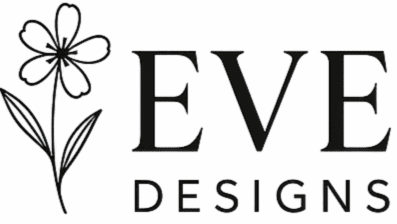AI and art — two worlds colliding, creating something totally new. Lately, that mix has taken over digital spaces. Creators are using AI to make stunning visuals, and one big question keeps coming up:
Can you sell AI-generated art on Canva?
Short answer: Yes, you can. But there are a few things you should know before uploading your AI-made masterpieces.

What Exactly Is AI-Generated Art?

AI art is made with the help of algorithms. Think of it as your creative partner — you give input, and the AI generates visuals based on patterns, styles, or data it has learned from.
It’s not just pressing a button, though. Great AI art often requires guidance, fine-tuning, and a human eye for detail. Whether it’s abstract patterns, surreal portraits, or futuristic landscapes, it all starts with your ideas.
So, Can You Sell AI Art on Canva?
Yes — Canva allows AI-generated art on its marketplace.
But there’s a catch: your work must be original. That means:
- You can’t upload work that copies someone else’s content.
- You must have the rights to use any elements (like images, fonts, or textures).
- Your design should show your creative touch — even if it’s assisted by AI.
If you’re selling AI art on Canva, follow their content and licensing rules. They’re serious about copyright.
Canva’s Marketplace: A Quick Overview

If you’re new to Canva’s marketplace, here’s what you’ll find:
- A platform to sell your templates, graphics, and digital art.
- A huge global audience.
- Tools to help you list, license, and manage your work.
Many creators upload everything from Instagram post templates to abstract art prints. Your AI work can fit right in — if it follows the rules.
Legal Stuff You Should Know
Here’s what to keep in mind:
- Copyright belongs to people, not machines. You must be the one guiding the creation process to claim ownership.
- If your AI tool uses copyrighted images or data to generate art, make sure you’re not violating anyone’s rights.
- Always credit or license third-party assets if you use them.
Staying on the right side of copyright law protects your work and builds trust with buyers.
Tips to Succeed with AI Art on Canva
Here’s how to stand out and make sales:
1. Make Your Listings Shine
- Use high-quality images.
- Add descriptive titles and keywords.
- Write a clear, engaging description. Tell buyers what makes your art unique.
2. Be Transparent
Let people know your work is AI-assisted. It helps build trust and shows you’re an honest creator.
3. Diversify Your Portfolio
Upload different styles and formats. Think templates, patterns, backgrounds, and illustrations.
4. Set the Right Price
Don’t undersell yourself. Price based on originality, effort, and what similar listings charge.
5. Stay Updated
Canva’s policies change. Check back regularly so your work always meets their standards.
FAQs
Q.. Can I use any AI tool to create art for Canva?
Yes, as long as your final work meets Canva’s originality and copyright rules.
Q: Can I sell the same design on other platforms like Etsy or Society6?
Usually, yes — unless you’ve signed an exclusive agreement.
Q: What if someone copies my design on Canva?
Report it. Canva has a process for handling copyright violations.
Q: Can I collaborate with other artists or developers?
Definitely. Just make sure everyone involved agrees on ownership and usage rights.



A few of our favorite AI-generated pieces — ready for the Canva marketplace
Final Thoughts
AI art is still new territory — exciting, evolving, and full of opportunity. Canva gives you the space to share your work, grow your brand, and make money doing what you love.
But remember: creativity, ethics, and originality still matter most.
If you’re ready to give it a go, start small. Upload a few designs. Test what works. Listen to feedback. And most of all — keep creating.
RELATED CONTENT
External Sources
- Canva’s Marketplace Guidelines and Policies: For a comprehensive understanding of Canva’s policies regarding the sale of AI-generated art and other digital designs, refer to Canva’s marketplace guidelines and policies. These guidelines outline the platform’s standards for content quality, copyright compliance, and ethical conduct, providing valuable insights for artists navigating the marketplace.
- Legal Resources on Copyright and Intellectual Property Rights: Explore reputable legal resources to deepen your understanding of copyright law and intellectual property rights as they pertain to AI-generated art. Websites such as the U.S. Copyright Office and World Intellectual Property Organization (WIPO) offer valuable information and resources on copyright registration, licensing, and enforcement.
- Articles or Studies on Ethical Considerations of AI-Generated Art: Dive into scholarly articles and studies exploring the ethical implications of AI-generated art. Platforms like Google Scholar and academic journals such as the Journal of Artificial Intelligence Research (JAIR) provide valuable insights into topics such as authorship, authenticity, and transparency in AI art creation.
